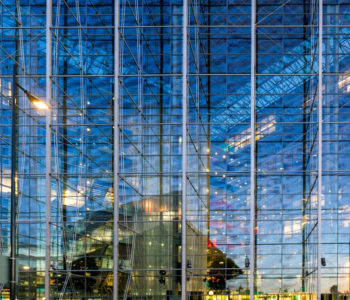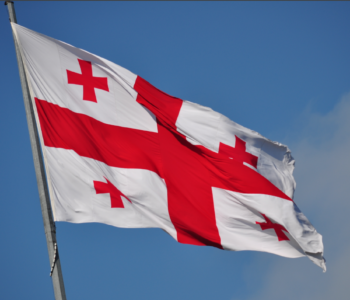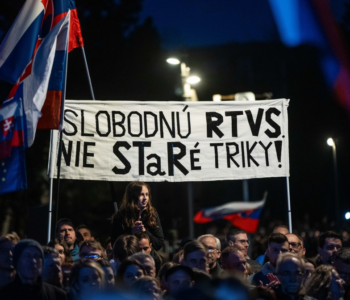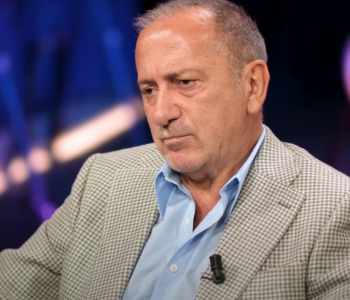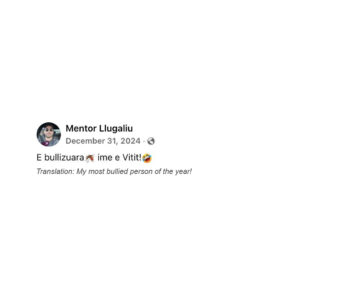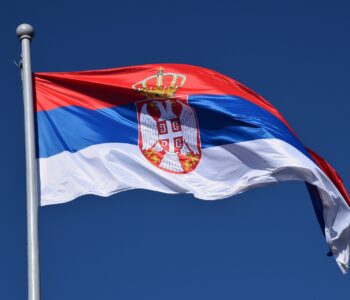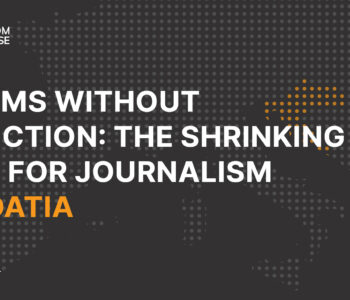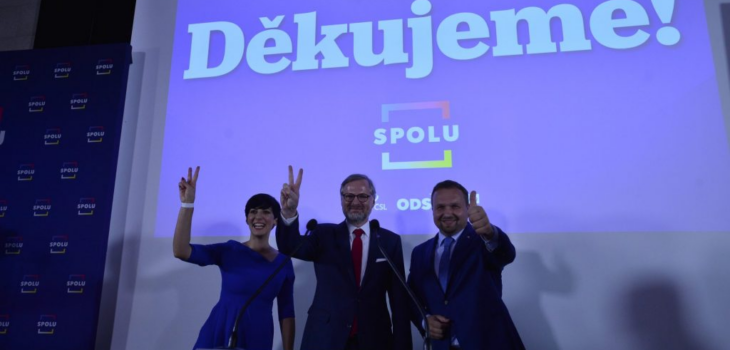
Despite election defeat, Babiš’s influence over the media still matters (FORUM 24)
After Czech election result, political influence over the media remains a major problem
Johana Hovorková, editor-in-chief, FORUM 24
This piece is published in collaboration with FORUM 24 as part of a content series on threats to independent media in Central Europe. Read more
On October 8 and 9, the Czech Republic held elections to the Chamber of Deputies, the lower chamber of parliament. A coalition of the so-called traditional parties named SPOLU (United) clinched a narrow victory over the ANO movement of now former prime minister Andrej Babiš – but despite their victory effectively ousting the oligarch, the political contest was not and is not fair. Candidates face unequal conditions and this will continue to be the case in the municipal and presidential elections ahead.
The former prime minister Babiš, through his trust funds, owns media companies which control a third of the Czech market. His Agrofert corporation employs tens of thousands of people and places a considerable number of ads in the media it does not own. Thus, it is hardly to be expected that the media will dare to be critical of him.
The Czech Republic does have the Office for the Supervision of Political Parties and Political Movements, whose task is to monitor compliance with the 90 million CZK spending limit for campaigns. Unfortunately and despite repeated inquiries and warnings from journalists and democratic politicians, it does not consider the pieces in the media owned by Babiš´s publishing houses as campaign spending, even though they are often open PR or smear campaigns against his adversaries. In response to FORUM 24´s question, the office explained it considered them opinion pieces like any other.
In the same fashion, the public Czech TV and Czech Radio regularly invited—and they still do—editors from the Agrofert-owned Mafra publishing house to their shows to comment on politics and often on topics exclusively related to the prime minister, presenting them as “unbiased” commentators. This practice has not changed so far and the audience is not provided with information about whose interests these journalists represent.
You know how I am
The daily papers MF Dnes and Lidové noviny, also owned by Agrofert, published obsequious interviews with ministers from ANO before the elections. This opportunity was unavailable to any other representative of the opposition parties. Furthermore, Andrej Babiš owns a whole range of tabloid and lifestyle media.
These are excerpts from a tabloid weekly Rytmus života, which claims readership of 370 thousand per issue. One of the September issues boasted a double page piece about Babiš and his wife Monika with phrases like these:
“The kind face of Andre Babiš only changes when somebody fails to keep their word” and “What helps one act calmly is doing things in line with one´s conscience”.
This is the first question: “Why did you enter politics? What was your reason for it?” And this is the prime minister´s answer: “You know how I am. I am not indifferent to what is going around me and never have been…”
Babiš´s media also systematically suppressed scandals which involved the former prime minister. These included for example the poisoning of the Bečva river as a consequence of a chemical leak which had killed fish. An Investigation conducted by independent media points to the possibility the culprit was chemical producer DEZA from the Agrofert corporation. The papers owned by the corporation virtually failed to mention that.
These outlets also devoted little coverage to the facthat Andrej Babiš´s son returned to the Czech Republic, where he was able to give his testimony to the local police after many years. He claims to have been used in the so-called Čapí hnízdo scheme, for which his father is being prosecuted. The crux of the matter is a 50 million subsidy earmarked for small and midsized companies. Holding Agrofert got this money from the EU illegally and Babiš claimed that Čapí hnízdo is just a small company which has nothing to do with his imperium.
Given ANO´s dominant position over their junior cabinet partner ČSSD (Social Democrats), it was also impossible to ask members of the cabinet difficult questions. At the beginning of 2020, FORUM 24 was refused a permit to attend the press conferences held regularly at the Cabinet Office and this policy was not altered even during the covid 19 pandemic when they were held online and there were no grounds for limiting the number of attending journalists.
The inequality is further proven by FORUM 24´s findings based on the analysis of publicly available data from Datlab. The Mafra publishing house was awarded ad contracts worth 140 million CZK between 2018 and 2020. The list of advertisers includes ministries, regional government, but also state owned cultural institutions. None of the more critical media outlets received even a fraction of this amount despite the fact that their reach is not significantly lower and in some cases is even higher than that of the media selected for the campaigns, such as MF DNES and Lidové noviny papers.
The Czech media environment is severely skewed. Given the range of Andre Babiš´s business interests, virtually no industry or field remains unaffected. From food production, through urea production, underwear retail, running fertility treatment clinics to media. No other Czech citizen, let alone a politician, can compete with him in this. No other political party has unlimited resources for its campaign and no other politician employs journalists.
Exit strategy
The October elections have demonstrated that not even Andrej Babiš´s hegemony is all-powerful. The democratic parties successfully formed two coalition blocs to form a government. There will certainly be many things one can criticize this cabinet for, but the game will be played on a democratic playing field, something which was almost lost in previous years.
One of the things that helped the representatives of independent media and civil society in the previous term was international pressure. Two significant declarations of the EU Parliament were ratified, the EU Parliament conducted a fact-finding mission to the Czech Republic and international journalist institutions also expressed their concern over, among other things, the restrictions of cabinet press conference admissions. That is very important, because otherwise, there tends to be a widespread feeling that outside Poland and Hungary, no serious challenges to press freedom exist in the EU. But they do in Czechia.
Soon Czechs will be voting for a new president, who does not have the deciding power, but his or her role is important nonetheless since he or she can push the limits of the Constitution as demonstrated by Miloš Zeman. He refused to to appoint a minister on the proposal of the Prime Minister due to differing views although it is his duty.
Andrej Babiš has already started preparing for the election. Regardless of who will face him in the popular election, we know that just as in the parliamentary elections, the playing field will not be level. Babiš´s candidacy will be openly supported by a third of the media (the ones he owns) and at least another third will give him a lot of uncritical coverage because of Agrofert´s ads (this third includes for-profit TV Nova and TV Prima).
Is it possible to say the election is fair under such conditions? Will citizens be able to decide based on all the information which could and should be available to them? Hardly. It is necessary to keep drawing attention to this situation both in the Czech Republic itself and abroad.
This piece is part of a content series on threats to independent media in Central Europe in collaboration with leading independent media in the region. Read more.
This article was published as part of the Media Freedom Rapid Response (MFRR), a Europe-wide mechanism which tracks, monitors and responds to violations of press and media freedom in EU Member States and Candidate Countries.

